Private guards the wrong choice for hotel quarantine, inquiry finds
Former health minister Jenny Mikakos has savaged Dan Andrews, saying Victorians deserved the truth rather than “another masterclass in political deflection”.
Coronavirus
Don't miss out on the headlines from Coronavirus. Followed categories will be added to My News.
Former health minister Jenny Mikakos says the Coate inquiry has “failed to answer key questions” and has called for the release of Daniel Andrews’ phone records.
Ms Mikakos criticised the hotel quarantine inquiry for failing to answer key questions.
And she slammed Department of Health and Human Services officials and Chief Health Officer Brett Sutton for failing to raise concerns with her about the program which triggered the state’s second coronavirus wave and claimed more than 800 lives.
“I believe Victorians deserve to know the truth about an event that has so profoundly impacted them,’’ Ms Mikakos said.
“They do not need another masterclass in political deflection from the Premier”.
She called for the Coate inquiry to release all phone records from March 27 — the day national cabinet approved the use of hotels to quarantine people arriving from overseas.
Later that day, senior officials met at the State Control Centre to discuss the implementation of the scheme and the decision was made to use private security guards, rather than police, to monitor hotel guests.
The Premier’s phone records from that day would show which ministers he called and received calls from.
During the inquiry, counsel assisting was provided with phone records from Mr Andrews, Police Minister Lisa Neville, then police chief commissioner Graham Ashton and other senior officials.
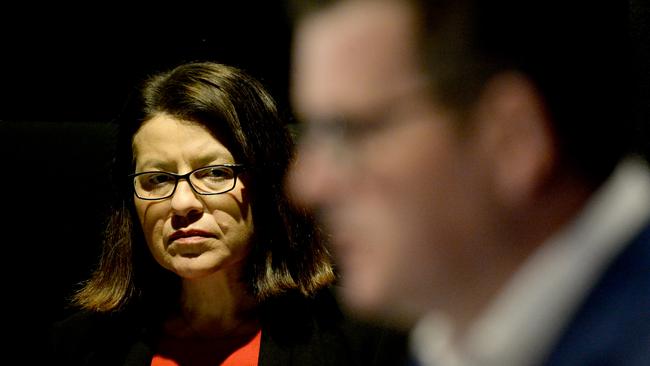
Most were not released publicly, although some text exchanges between the Premier and his chief of staff, Lissie Ratcliff, were. In one message on March 27, Mr Andrews tells Ms Ratcliff that “CEO of logistics at Linfox happy to help with any hotel arrangements”.
Mr Ashton provided full incoming and outgoing records from his phone company.
Other phone logs and messages were supplied that the ministers and officials deemed relevant to the inquiry.
But while the inquiry examined all of the records, it withheld a number from the public which it deemed to be personal or unrelated to the program.
Ms Mikakos resigned from the government on September 26 — one of six ministerial departures during 2020 — claiming that her integrity had been questioned.
Two weeks later, Ms Mikakos submitted evidence to the inquiry, urging it to treat the Premier’s evidence with “caution”, saying it would be “nonsense” for her only to be accountable. But she was never recalled to the inquiry to clarify her assertion.
On Monday night the former Upper House MP again defended herself, saying she was “profoundly disappointed” she was not adequately briefed by department officers and that Professor Sutton failed to raise concerns with her.
“The Coate inquiry has failed to answer key questions,’’ she said. “They (Victorians) do not need another masterclass in political deflection from the Premier.
“Further, I am disappointed the inquiry decided to redact some phone records, including the Premier’s calls in their entirety and to subject these to a non-publication order. In the interests of public transparency, all telephone call records provided relating to 27 March, 2020, should be publicly released.’’
Mr Andrews had told the Coate inquiry the DHHS had responsibility for the hotel quarantine and he “regarded minister Mikakos as accountable for the program’’.
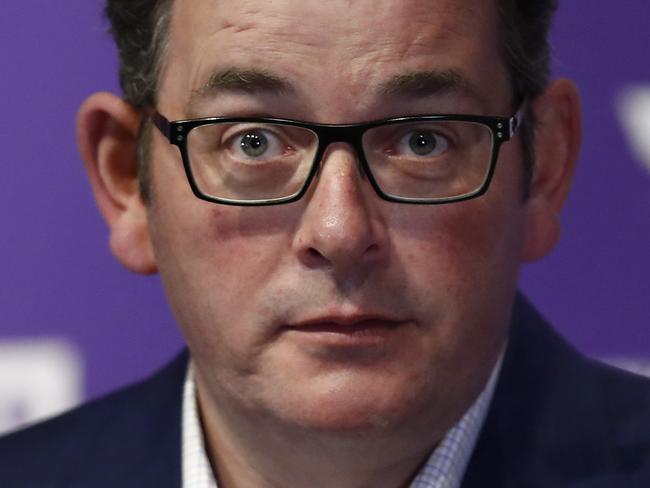
On Monday, he said the inquiry had vindicated his view of events over Ms Mikakos’s.
“The minister was of a view that what I said to the inquiry was wrong,” he said. “Well, the inquiry has cleared that up today. That is now beyond any doubt, right?’’
Ms Mikakos, who served 21 years in state parliament, said in her latest statement that she was devastated by the “great suffering experienced by Victorians this year, the lives lost, especially in private aged care, the loneliness and the financial struggles’’.
“I reiterate my deepest admiration of Victorians’ collective efforts and the sacrifices made that has led to the elimination in our state of the virus,” she said.
Ms Mikakos, a member of the eight-person crisis council of cabinet, provided a second statement to the inquiry after it was revealed she and Martin Pakula were at a press conference on March 29 when the use of private security was discussed. She told the inquiry she did not know who made the decision to use security guards from private firms.
The report said: “Former minister Mikakos added that the decision to use private security, knowing what she now knows, was not a decision she would have supported.”
On October 25, Ms Mikakos took to social media to accuse the Premier of “paralysis in decision-making” for postponing his announcement about easing Melbourne’s coronavirus restrictions.
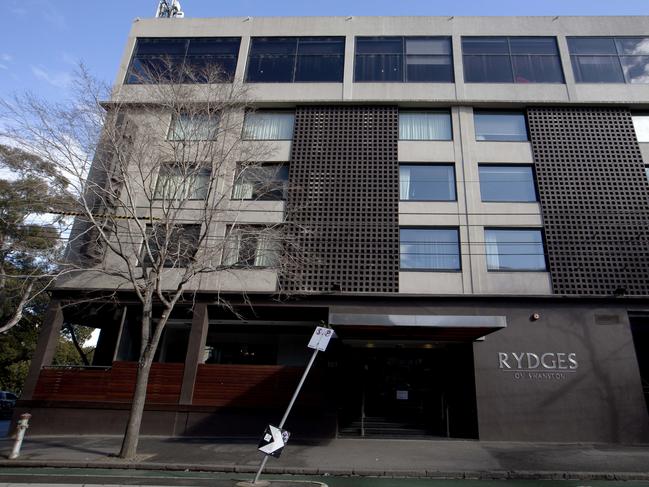
FINDING THAT WILL ‘SHOCK THE PUBLIC’
Board of Inquiry Chair Jennifer Coate acknowledged decisions were being made with haste after the Prime Minister announced the mandatory 14-day program for returned travellers on March 27, giving Victoria just 36 hours to create the program.
But the six-month inquiry had failed to spell out why private security was the chosen workforce to guard the quarantine program.
Ms Coate said the Premier, nor his Ministers, had any active role in, or oversight of the decision about how enforcement of quarantine would be achieved.
“The fact remains that not one of the more than 70,000 documents produced to the inquiry demonstrated a contemporaneous rationale for the decision to use private security as the first tier of enforcement, or an approval of that rationale in the upper levels of government,” she said.
“Such a finding is likely to shock the public.
“It remained, as multiple submissions to the inquiry noted, an orphan, with no person or department claiming responsibility.”
LACK OF LEADERSHIP ‘TRAGICALLY ILLUSTRATED’
Ms Coate said the Department of Health and Human Services did not see itself as the control agency responsible for the hotel quarantine program, nor did it see itself as in charge on-site.
This left brewing the disaster that tragically came to be, she said.
“This complex and high-risk environment was left without the control agency taking its leadership role, which included the need to provide on-site supervision and management,” Ms Coate added.
“This should have been seen as essential to an inherently dangerous environment.
“That such a situation developed and was not apparent as a danger until after the two outbreaks, tragically illustrated the lack of proper leadership and oversight, and the perils this created.”
The inquiry has so far cost the careers of Health Minister Jenny Mikakos and Department of Health and Human Service secretary Kym Peake since it launched in July. Premier Daniel Andrews’ right-hand man, chief bureaucrat Chris Eccles also has quit.
‘TOO MUCH AT STAKE’
There was simply “too much at stake” for the government to put responsibility for infection prevention onto hotels and commercial cleaners, Ms Coate said in her report.
“It was not appropriate for the state government to seek to impose the risk of transmission of COVID-19 onto the hotel and cleaning providers in the way in which these contracts purported to do,” she said.
The contracts entered into by the Department of Jobs, Precincts and Regions (DJPR) gave hotels and cleaners important responsibility for worker safety, including the need to provide PPE and to manage infection prevention and control.
“The hotel quarantine program was not just a workplace or a private arrangement between employer and employee, or contractor and principal. It should not have been seen solely through that lens,” Ms Coate said.
“It was, fundamentally, a measure to protect the public from a significant health threat. There was simply too much at stake for the state to have conferred such responsibilities on private service providers, whose ordinary roles were so far removed from infection prevention and control measures.”
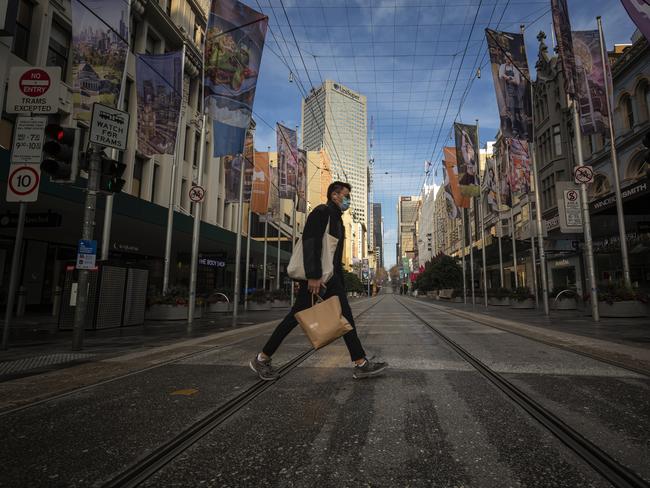
JOBS DEPARTMENT FAILED ON CONTRACTS
The DJPR failed to have adequate oversight of the use of private security subcontractors, partly because it wasn’t aware how much head contractors were relying on them.
Ms Coate labelled it a “significant deficiency” that DJPR was not able to know the extent to which the security providers actually engaged in subcontracting throughout the duration of the hotel quarantine program, let alone be confident about their ability to provide services.
“DJPR should have been more vigilant and proactive in requiring the security service providers to seek written prior approval for the engagement of subcontractors, as per their respective contracts,” she said.
“But so, too, should the security services providers have complied with their subcontracting obligations at the required time.”
Ms Coate said department staff did not act in bad faith, however more thought should have been given to the environment in which guards were working and their prior infection control knowledge.
“As an industry, casually employed security guards were particularly vulnerable because of their lack of job security, lack of appropriate training and knowledge in safety and workplace rights, and their susceptibility to an imbalance of power resulting from the need to source and maintain work,” she said.
“These vulnerabilities had previously been identified by the government.”
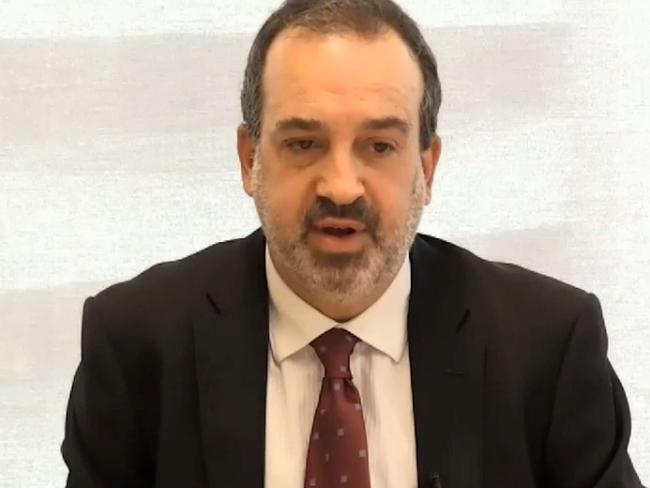
PREFERRED CONTRACTORS OVERLOOKED
The government awarded contracts worth tens of millions of dollars to private security services, but not all were among the government’s list of preferred providers.
Unified security was not on a government panel of preferred businesses to use, like the other larger two companies, MSS and Wilson, yet it got a lot of the work, including at the Rydges on Swanston, where the first outbreak occurred in May.
Unified was almost entirely reliant on subcontractors, in turn drawing on small subcontracting companies. One of the small subcontractors was providing hundreds of guards a day across six hotels.
Ms Coate said the government should have relied on existing arrangements with preferred providers - known as state purchase contracts (SPC) - as much as possible.
“It was a failure of government decision-making to contract a firm that had previously been refused admission to the SPC for security services for, what became, very significant sums of money, and then to allocate so much work to that firm.”
Ms Coate said the heavy reliance on subcontracting posed a significant risk to the quarantine program’s success.
ARMY NOT EVEN CONSIDERED
Ms Coate says there was no actual consideration of whether Australian Defence Force personnel would have been a better enforcement option at the hotels when the program was set up.
“The assessment that ADF was not needed on the ground at the hotels was an assessment made without any proper consideration of … what would be the best enforcement option,” she said.
Emergency management commissioner Andrew Crisp decided not to ask for ADF help as of March 27, because once it was agreed private security would be used, there was no longer a need.
Ms Coate said the government’s decision-making process was at odds with the Westminster system principles of responsible government, made without proper analysis or clear rationale.
And given no one knew who made the decision, there was an obvious risk no one understood they were responsible for changing it, if it was wrong.
“That a decision of such significance for a government program, which ultimately involved the expenditure of tens of millions of dollars and the employment of thousands of people, had neither a responsible Minister nor a transparent rationale for why that course was adopted, plainly does not seem to accord with those principles,” she said.
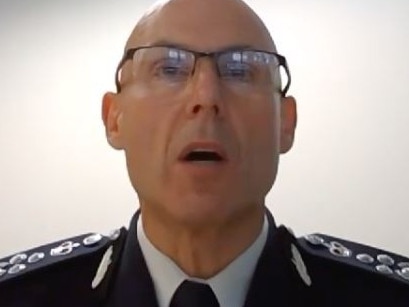
WRONG DEPARTMENT MANAGED SECURITY CONTRACTS
Ms Coate said the DJPR should not have been responsible for managing the contracts with security companies.
She said it would come as a surprise to many that such large contracts did not appear to have direct oversight from Jobs Minister Martin Pakula.
Mr Pakula told the inquiry it was not typical for ministers to be briefed on contract details or even that they had been entered into.
Ms Coate said those who negotiated the terms of the contracts, and those who ‘supervised’ them, were doing so without any clear understanding of the role of security in the broader hotel quarantine program and had no expertise in security issues or infection prevention and control.
Instead, the Department of Health and Human Services (DHHS) was the appropriate body to manage the contracts and should have done so as the control agency with overall responsibility for the program.
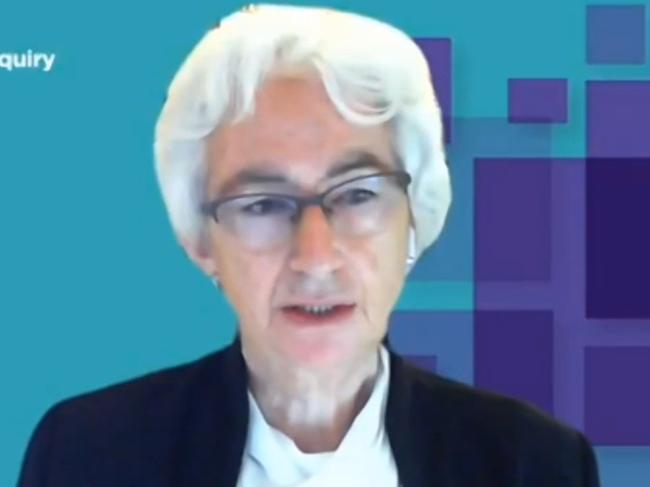
DISPUTE OVER WHO WAS IN CHARGE
Ms Coate said there was an ongoing dispute between the DHHS and the DJPR over who was in charge of operating the quarantine program.
She also found failures in the program’s establishment, given the state government did not give proper consideration to the risks involved.
“It is beyond doubt that many people worked incredibly hard, in extraordinary time frames, to deal with an unprecedented set of circumstances,” she said.
“But that is not a total justification for the deficiencies in some of the actions taken, and decisions made, in that first 36 hours, and it does not excuse the deficiencies found in the program.”
More Coverage
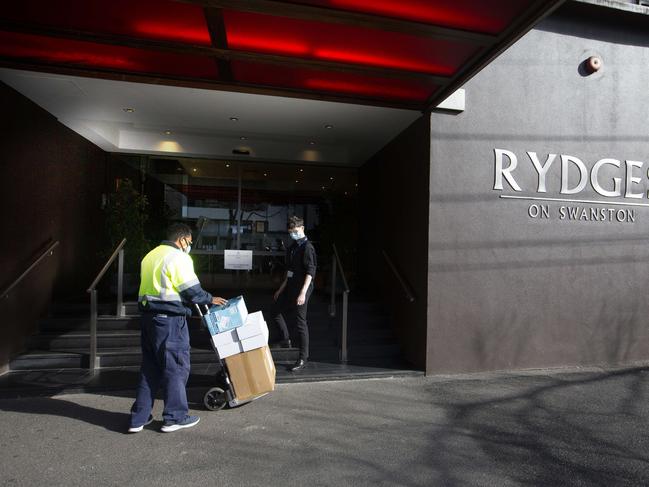
Originally published as Private guards the wrong choice for hotel quarantine, inquiry finds




